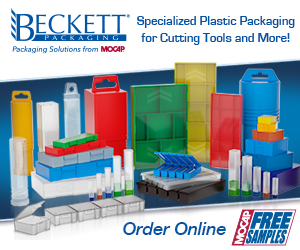
The PGU 9500 automatic clamping unit is the newest member of REGO-FIX Tool Corp.’s well-established powRgrip family of toolholding. The system is smaller in size, ergonomic, energy efficient and practically maintenance free.
The PGU 9500 operates basically the same as REGO-FIX’s existing clamping units. However, it has less moving parts and incorporates long-lasting durable proximity switches as well as other design changes that significantly boost reliability and system longevity as well as energy savings.
And for added convenience, REGO-FIX offers shops the option to rent a powRgrip system, including the PGU 9500, on a monthly basis. As part of the program, customers can trade for a new system after 18 months and earn credit towards the purchase price of a system if they eventually decide to own a powRgrip system.
To enhance system speed, ease of use and operator efficiency, REGO-FIX streamlined the PG 9500’s exterior design and strategically relocated some key control elements. The main power switch, for instance, is conveniently
situated at the side of the unit, and all exterior buttons are flush mounted for operator safety and to prevent damage.
REGO-FIX PG toolholding systems rely on the interference between holder and collet to generate their clamping force. Unlike other clamping systems where heat or hydraulics are used to expand the material, the PG uses the
mechanical properties of the holder material to generate tremendous gripping force with run-out below 0.0001”. Interchangeable collets are available from 1/8" up to 1", including metric sizes, and will hold both carbide and HSS tools.
PG units take less than 10 seconds to press in a tool or remove it from the holder. Because no heat is used, tools can be used immediately after a tool change. Cycle testing exceeded over 20,000 insertions and removals, outperforming other systems on the market.
Contact Details
Related Glossary Terms
- collet
collet
Flexible-sided device that secures a tool or workpiece. Similar in function to a chuck, but can accommodate only a narrow size range. Typically provides greater gripping force and precision than a chuck. See chuck.
- high-speed steels ( HSS)
high-speed steels ( HSS)
Available in two major types: tungsten high-speed steels (designated by letter T having tungsten as the principal alloying element) and molybdenum high-speed steels (designated by letter M having molybdenum as the principal alloying element). The type T high-speed steels containing cobalt have higher wear resistance and greater red (hot) hardness, withstanding cutting temperature up to 1,100º F (590º C). The type T steels are used to fabricate metalcutting tools (milling cutters, drills, reamers and taps), woodworking tools, various types of punches and dies, ball and roller bearings. The type M steels are used for cutting tools and various types of dies.
- mechanical properties
mechanical properties
Properties of a material that reveal its elastic and inelastic behavior when force is applied, thereby indicating its suitability for mechanical applications; for example, modulus of elasticity, tensile strength, elongation, hardness and fatigue limit.









